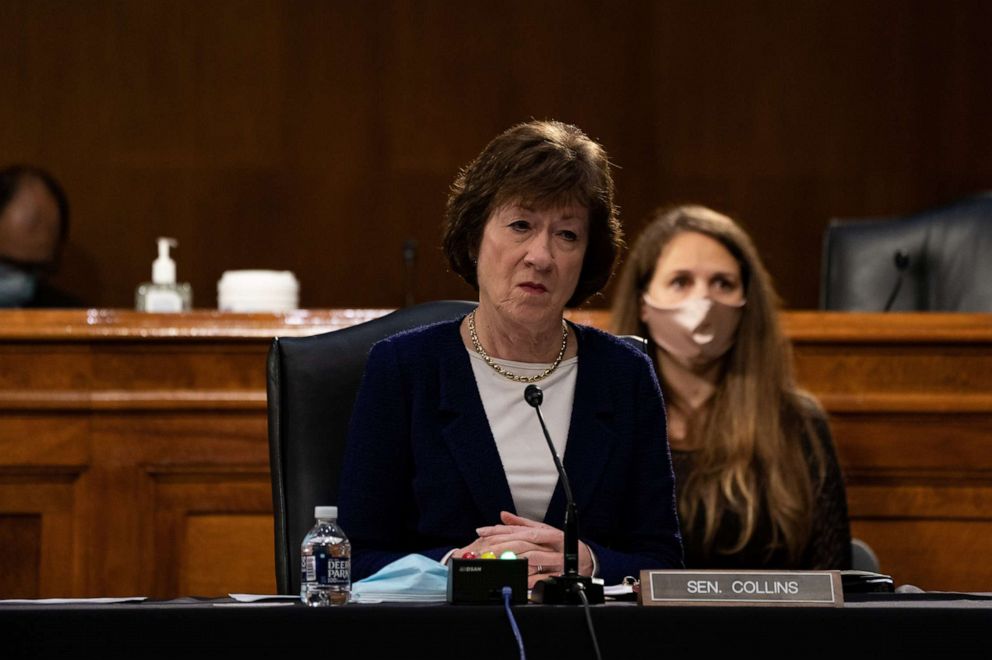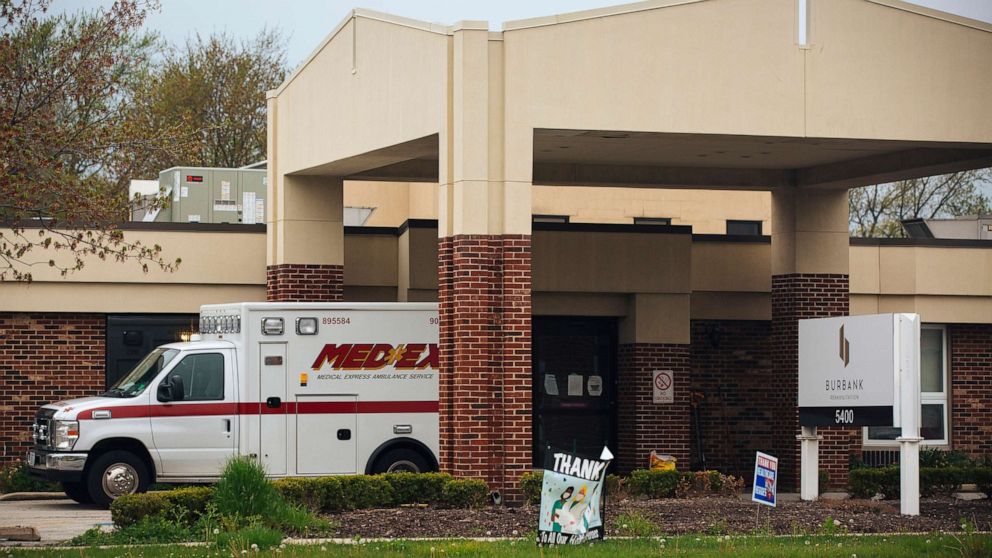In nursing homes, as in wider community, minorities hit hardest by COVID, researchers say
Nursing homes serving mostly minority populations are twice as likely to experience a deadly coronavirus outbreak as those with mostly white residents, according to new research on the devastating impact the highly contagious illness is having on vulnerable residential care facilities.
“Our biggest predictor was race,” said R. Tamara Konetzka, a professor at the University of Chicago who led the study. “The higher percent white residents in a facility, the less likely that facility has had a single case or a single death.”
The disparity in deaths in nursing homes mirrors a larger national trend that is seeing minorities disproportionately impacted by the virus. Black Americans and Latinos make up about a quarter of the nation’s nursing home population, according to the Centers for Disease Control and Prevention.
The research shows that nursing homes serving mainly minority populations experience at least one case of coronavirus at higher rates than facilities serving majority white populations, according to Konetzka. The same is true when considering the rate of death from the virus. And while the virus has proven to have a devastating impact on all nursing homes, the data shows facilities with large minority populations are being impacted at a higher rate.
Konetzka told ABC News some of the same disparities that have made those minority communities more vulnerable to the virus are even more acute in nursing homes, where non-white residents more regularly rely on Medicaid to pay for their care. Medicaid is a federal program that helps provide health coverage for low-income families.
This report is part of “Pandemic – A Nation Divided,” ABC News' special coverage of the heightened racial/ethnic and socioeconomic disparities amid the COVID-19 pandemic. Tune into "Nightline" at 12 a.m. ET Thursday on ABC for the second part of the three-day series.
Konetzka's study, by her and fellow University of Chicago colleague Rebecca Gorges, has not yet been published, but she said she plans to present the findings before lawmakers Thursday. The research draws from public data from 12 states, covering 5,527 nursing homes, about a third of which had at least one case of COVID-19.
Konetzka said Medicaid-funded facilities are often cited for having a lower quality of care and fewer staff to care for residents -- some of the same factors that federal officials who regulate nursing homes are seeing in homes with the most deadly COVID-19 outbreaks.
Seema Verma, who runs the Center for Medicare and Medicaid Services, told ABC News last week that the agency was seeing more fatalities in facilities that did not have appropriate staffing in place. She cited the agency’s review of a Seattle nursing home where coronavirus killed 37 people in March.
“There was not a physician that was available,” Verma said. “So as patients were having problems, as they were deteriorating, they didn’t have the appropriate backup in place.”
The new research on racial disparities in nursing home outbreaks comes as Congress is focusing fresh attention on the array of factors that have made nursing homes one of the deadliest settings during the coronavirus outbreak.
More than 26,000 deaths from the disease have occurred in nursing homes, and the densely-populated facilities have accounted in some states for more than half of all fatalities, according to an ABC News survey of 38 states plus the District of Columbia. Not all states yet report this data, and the federal government does not have a public national tally.
Konetzka is scheduled to share her findings Thursday with the Senate Aging committee during a hearing on the impact of coronavirus on aging populations. The hearing will be the Senate’s first to focus explicitly on the needs of seniors since the virus took hold in March.
Sen. Susan Collins, R-Maine, who chairs the committee told ABC News she is “focused on helping to protect the health of vulnerable seniors in long-term care facilities during this pandemic.”

One major focus for nursing home providers is money. The industry has asked for $10 billion to help nursing homes survive financially as the crisis has gripped them.
Congress has already provided some aid to nursing homes as part of the $2 trillion coronavirus relief package passed in March, including $200 million allocated to the Centers for Medicare and Medicaid to assist the agency with infection prevention in the homes.
The stimulus also allocated $100 billion to provide assistance to health care facilities, for which nursing homes are eligible alongside hospitals and other facilities. The Department of Health and Human Services is responsible for distributing these funds.
A group of House Democrats recently wrote to HHS Secretary Alex Azar contending that not enough of the aid money has gone to nursing homes.
“Long-term care facilities are struggling to contain these outbreaks and keep their residents and workers safe,” the letter from 19 members said. “Additional financial resources would allow facilities to purchase more personal protective equipment and cleaning supplies, add additional staffers, and improve access to testing for residents and workers -- which is the foundation of any containment strategy.”
Senate Democrats have also highlighted new data published by the Government Accountability Office, which found that even before the pandemic, many nursing homes failed to meet federal standards on a variety of infection prevention and control measures.
"For years nursing home surveys pointed out areas where federal standards for nursing home safety and enforcement efforts should be improved, but the Trump administration chose not to correct them," Sen. Ron Wyden, D-Ore., said. "Too many seniors and their families have suffered as a result of this pandemic, and there need to be big changes in the way nursing homes care for seniors.”
The federal government has taken steps in recent weeks to provide other forms of direct aid to nursing homes. The Federal Emergency Management Agency began large shipments of masks, gowns and other protective equipment that are eventually supposed to reach all facilities nationwide. Last week, Vice President Mike Pence announced that the federal government wants nursing facilities to test all patients and staff over the next two weeks.
Thursday’s hearing will mark the Senate’s first steps toward charting new legislation to help with the ongoing nursing home crisis.
One topic expected on the agenda is how to handle an expected flood of lawsuits against homes where residents died during the outbreak. Several of the nursing homes involved in early outbreaks have already been informed of impending legal action.
Alexander Clem, an attorney with the Florida firm Morgan & Morgan that has announced its intent to sue a nursing home where 16 residents died, said the ability to hold facilities accountable is essential to ensuring patient safety.
“When nursing homes choose to not inform families, when they don’t get their staff tested or give their employees [protective gear], and when they don’t follow infection [protocols], that is when these outbreaks start spreading like wildfire,” Clem said during a press conference last week. “I foresee this being a nationwide endeavor for us across all 50 states. If there's a cluster and if they negligently are handled or grossly negligent to one of our loved ones, we'll be holding them accountable.”
Senate Majority Leader Mitch McConnell has repeatedly stated that he considers such lawsuits to be “frivolous,” and that one of his top priorities will be to enact liability protections for business and medical providers involved in caring for patients during the COVID-19 outbreak. McConnell has said the new protections would not provide total immunity.
"There will be accountability for actual gross negligence and intentional misconduct," McConnell said earlier this month. “We aren’t going to provide immunity. But we are going to provide some certainty."
McConnell has suggested he will reject any additional coronavirus relief legislation that does not include liability protection for health care providers. That has put him at odds with one of the nation’s largest organizations advocating on behalf of older Americans -- the AARP.
“With the limited accountability we have right now because of the lack of family visits, having this basic legal accountability is one of the few things that we have left to make sure that they keep peoples loved ones safe,” said David Certner the Legislative Counsel and Legislative Policy Director for Government Affairs at AARP. “The point is to maintain accountability especially at a time when there is none."
ABC News' Laura Romero contributed to this report
What to know about coronavirus:
- How it started and how to protect yourself: Coronavirus explained
- What to do if you have symptoms: Coronavirus symptoms
- Tracking the spread in the U.S. and worldwide: Coronavirus map




